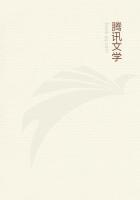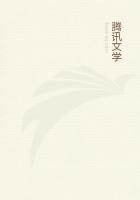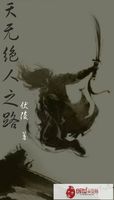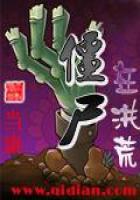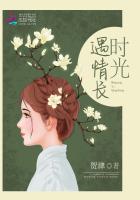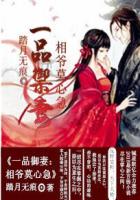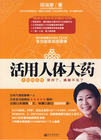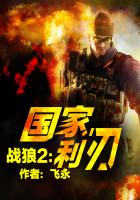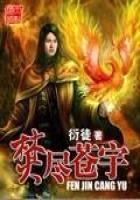As I have said, the whole South was a military camp. The colored people, four million in number, were submissive, and worked in the field and took care of the families while the able-bodied white men were at the front fighting for a cause destined to defeat. The cause was popular, and was enthusiastically supported by the young men. The conscription took all of them. Before the war was over, further conscriptions took those between fourteen and eighteen years of age as junior reserves, and those between forty-five and sixty as senior reserves. It would have been an offence, directly after the war, and perhaps it would be now, to ask any able-bodied man in the South, who was between the ages of fourteen and sixty at any time during the war, whether he had been in the Confederate army. He would assert that he had, or account for his absence from the ranks. Under such circumstances it is hard to conceive how the North showed such a superiority of force in every battle fought. I know they did not.
During 1862 and '3, John H. Morgan, a partisan officer, of no military education, but possessed of courage and endurance, operated in the rear of the Army of the Ohio in Kentucky and Tennessee. He had no base of supplies to protect, but was at home wherever he went. The army operating against the South, on the contrary, had to protect its lines of communication with the North, from which all supplies had to come to the front. Every foot of road had to be guarded by troops stationed at convenient distances apart. These guards could not render assistance beyond the points where stationed. Morgan Was foot-loose and could operate where, his information--always correct--led him to believe he could do the greatest damage. During the time he was operating in this way he killed, wounded and captured several times the number he ever had under his command at any one time. He destroyed many millions of property in addition.
Places he did not attack had to be guarded as if threatened by him. Forrest, an abler soldier, operated farther west, and held from the National front quite as many men as could be spared for offensive operations. It is safe to say that more than half the National army was engaged in guarding lines of supplies, or were on leave, sick in hospital or on detail which prevented their bearing arms. Then, again, large forces were employed where no Confederate army confronted them. I deem it safe to say that there were no large engagements where the National numbers compensated for the advantage of position and intrenchment occupied by the enemy.
While I was in pursuit of General Lee, the President went to Richmond in company with Admiral Porter, and on board his flagship. He found the people of that city in great consternation. The leading citizens among the people who had remained at home surrounded him, anxious that something should be done to relieve them from suspense. General Weitzel was not then in the city, having taken offices in one of the neighboring villages after his troops had succeeded in subduing the conflagration which they had found in progress on entering the Confederate capital. The President sent for him, and, on his arrival, a short interview was had on board the vessel, Admiral Porter and a leading citizen of Virginia being also present.
After this interview the President wrote an order in about these words, which I quote from memory: "General Weitzel is authorized to permit the body calling itself the Legislature of Virginia to meet for the purpose of recalling the Virginia troops from the Confederate armies."
Immediately some of the gentlemen composing that body wrote out a call for a meeting and had it published in their papers. This call, however, went very much further than Mr. Lincoln had contemplated, as he did not say the "Legislature of Virginia" but "the body which called itself the Legislature of Virginia."
Mr. Stanton saw the call as published in the Northern papers the very next issue and took the liberty of countermanding the order authorizing any meeting of the Legislature, or any other body, and this notwithstanding the fact that the President was nearer the spot than he was.
This was characteristic of Mr. Stanton. He was a man who never questioned his own authority, and who always did in war time what he wanted to do. He was an able constitutional lawyer and jurist; but the Constitution was not an impediment to him while the war lasted. In this latter particular I entirely agree with the view he evidently held. The Constitution was not framed with a view to any such rebellion as that of 1861-5. While it did not authorize rebellion it made no provision against it. Yet the right to resist or suppress rebellion is as inherent as the right of self-defence, and as natural as the right of an individual to preserve his life when in jeopardy. The Constitution was therefore in abeyance for the time being, so far as it in any way affected the progress and termination of the war.
Those in rebellion against the government of the United States were not restricted by constitutional provisions, or any other, except the acts of their Congress, which was loyal and devoted to the cause for which the South was then fighting. It would be a hard case when one-third of a nation, united in rebellion against the national authority, is entirely untrammeled, that the other two-thirds, in their efforts to maintain the Union intact, should be restrained by a Constitution prepared by our ancestors for the express purpose of insuring the permanency of the confederation of the States.
After I left General Lee at Appomattox Station, I went with my staff and a few others directly to Burkesville Station on my way to Washington. The road from Burkesville back having been newly repaired and the ground being soft, the train got off the track frequently, and, as a result, it was after midnight of the second day when I reached City Point. As soon as possible I took a dispatch-boat thence to Washington City.

